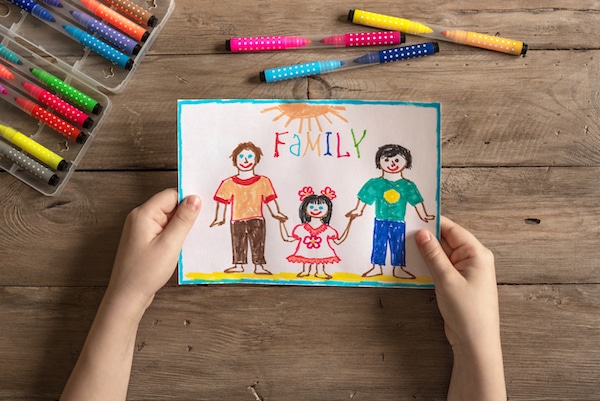Family Connections
Children learn best when families feel involved and connected. That’s why we share resources that engage families in supporting children’s learning and development.

Supporting Every Family
Families come in all shapes and sizes, but they all want children to have the best possible early learning experiences! We help you connect with families by sharing resources that promote interactions of warmth, respect, and sensitivity to each family’s needs, background, and culture.
Engaging Families Early On
Teacher-Child Relationships
Strong relationships with families lead to strong relationships with children. NAEYC shares key practices that engage families in their child’s early learning.
Working with Families to Support Peer Relationships
Peer Relationships
This article from Raising Children Network (Australia) discusses how preschoolers make friends and what educators and families can do to support peer relationships.
Families as a Resource
Problem Solving With Others
In this article from the Center for Responsive Schools, Carol Davis shares how teachers can have conversations with families about problems that occur in the classroom.
Modeling Empathy
Fostering Empathy
Written by Amanda Morin for Understood.org, this blog is a great introduction for parents on what empathy is, how children learn this important skill, and how parents can model it at home.
Working with Families to Support Children's Self- Confidence
Promoting Self-Confidence
In this article from the Child Mind Institute, Liz Greene shares four ways families can support the development of self-confidence.
Embracing Families
Developing Sense of Self
The National Center on Quality Teaching and Learning (NCQTL) shares tips for educators on building relationships with families of dual language learners.
Labeling Emotions at Home
Recognize and Describe Emotions
This short video (including printables) from Sesame Street models how caregivers can talk with children about their emotions, label children’s emotions, and support their big feelings with strategies that are simple to implement at home.
Tools to Talk About Emotions
Recognize and Describe Emotions
Young children deal with many of the same emotions that adults do. This short article from CSEFEL provides caregivers with simple strategies to help young children understand and express their emotions.
Responding to Strong Emotions
Supporting Children’s Emotions
Tantrums are one way young children express their strong emotions in the classroom and at home. This resource from Zero to Three offers caregivers strategies to prevent tantrums and respond to children’s strong emotions.
Supporting Families in Managing Behaviors
Supporting Children’s Behavior
Dr. Rosemarie Allen from the National Center for Pyramid Model Innovations talks with two mothers about their experiences with school suspension.
Looking for more resources?
Equity and inclusion are critical to our mission. We invite you to check out resources to help you and your teams consider different ways to support each child’s needs.

